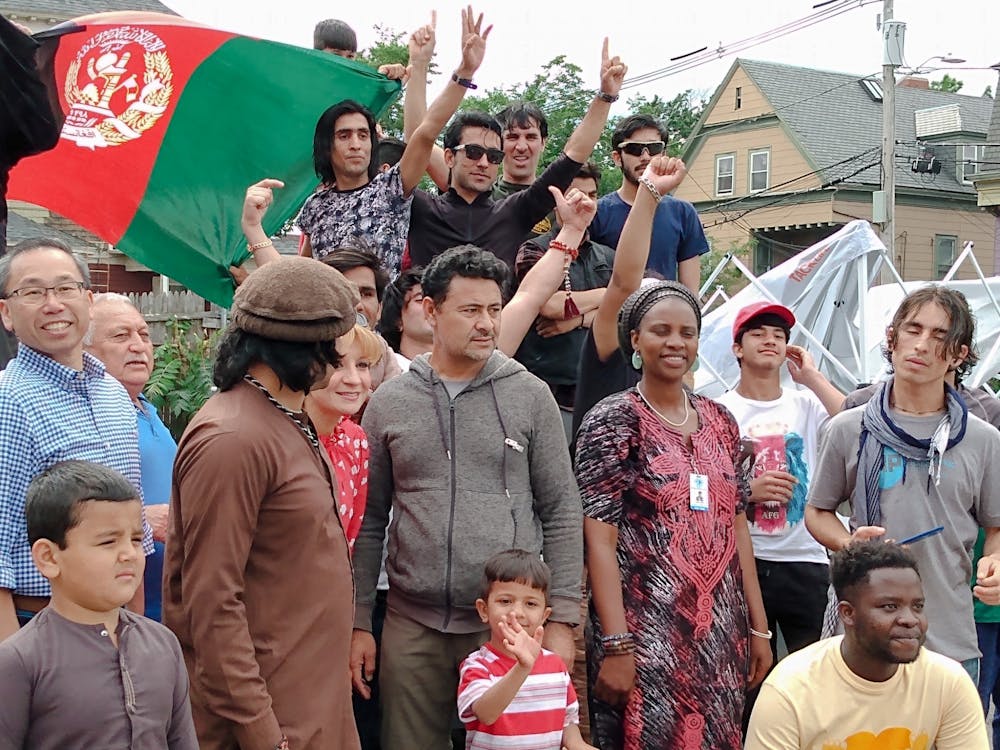For Omar Bah, community advocacy was a priority well before he arrived in the United States.
Formerly a journalist in The Gambia, Bah wrote a newspaper column focused on the work of major political figures in the nation, including former President Yahya Jammeh. However, after Bah began investigating Jammeh’s regime, Bah was tortured and ultimately forced to flee from his country to Senegal and Ghana.
Though Bah said he felt lucky to have been granted refugee status in the United States quickly, he recalled being at first unfamiliar with his new home in Providence when he arrived in 2007.
“I had never heard of Rhode Island or Providence until one day before my arrival,” he said. “It was overwhelming. People give you so much information, and that was quite a struggle.”
“I was traumatized and isolated,” he said. “I was already dealing with my own demons, and now I had to be confronted with new sources of stress.”
As a result of his experience as a recently resettled refugee, Bah began thinking about ways to empower refugees in the United States. Bah envisioned “refugees helping fellow refugees, like older refugees working with American allies to help build a volunteer base (to support refugees) from day one,” he said.
In 2015, Bah decided to make this model a reality, co-founding the Refugee Dream Center with his wife Teddi Jallow, who serves as the organization’s executive director. A nonprofit, post-resettlement agency, the RDC connects refugees with resources they may need after their arrival.
Resources offered by the RDC include food and cleaning supplies, preventative health courses, English lessons and assistance with paying bills.
Bah explained that these resources are critical given the diverse nature of the refugee community in Providence. He cited significant refugee populations arriving from five nations in particular: the Democratic Republic of the Congo, Afghanistan, Syria, Haiti and Somalia.
For Amin Faqiry, a refugee from Afghanistan, the idea of leaving his country behind had never crossed his mind.
But while working as a combat interpreter in Afghanistan for the American military, Faqiry witnessed the overthrow of the government by the Taliban, an Islamic fundamentalist group.
“There was no space in my own country … for me to live anymore because I was part of a government who fought against the (Taliban) terrorist organization,” Faqiry said.
Ultimately, he and his family made the difficult decision to flee Afghanistan. After staying in temporary housing in Qatar, Faqiry, his wife and their five children arrived in Providence in October 2021. Upon arriving at T.F. Green Airport, the family was greeted by Jallow and Bah.
Faqiry, who now owns and operates the Afghan Super Store located on Elmwood Street, described the support that the RDC offered him when he arrived in Providence. After Faqiry arrived, Jallow made a connection for Faqiry that led to a job at a law firm.
“I called Teddi and told her I (got) the job,” Faqiry said. “That was my first job in America.”
Bah emphasized that volunteers have been a critical lifeline for the center, especially when it lost most of its funding during the initial outbreak of the COVID-19 pandemic.
“Initially, we did not know what to do,” he said. “Most of our grants were for in-person services, so we did not get additional funding (or) resources. At some point, we only had two staff (members) because everyone was laid off and we couldn’t keep up with the work.”
To ensure that those in need could still access the center’s resources, the center pivoted to a hybrid model and began offering many of their instructional courses via Zoom.
Rochelle Lee, one of the center’s adult volunteers, emphasized the importance of having college students and younger voices at the RDC.
“Brown students have helped put fundraisers together, done outreach and family services, written grants (and helped) educate other students in the Brown community by putting on forums and informational events,” Lee said.
Ruth Belay ’24, a student worker at the RDC, is one of the center’s English tutors. She learned English as a second language, so she “can understand how language can be a huge barrier.” She “wanted to help out in any way that (she) could.”
Moving forward, Bah hopes to create a refugee clinic to improve access to medical services and reduce the stigma associated with refugees accessing mental health care and dental services.
“The clinic will entail a mental health counseling center where people will have clinical counseling for trauma treatment like PTSD,” Bah said. “It will really be phenomenal because wellness is more holistic.”
Lee added that she hopes that the work of the center will create a more informed public perspective about the refugee community.
“It’s important that people see (refugees) as human beings to understand their circumstances,” she said. “Because we try to engineer all kinds of policies without seeing the people that (they) will affect.”

Aniyah Nelson is a university news editor overseeing the undergraduate student life beat. She is a senior from Cleveland, OH concentrating in political science and sociology. In her free time, she enjoys listening to music and watching bloopers from The Office.





